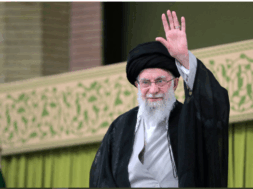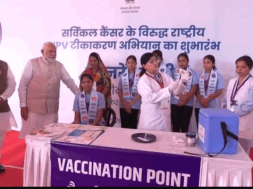
Diplomacy: India and the UK unveil TSA; to seal FTA soon
Virendra Pandit
New Delhi: India and the United Kingdom on Wednesday said they are moving towards signing a free-trade agreement (FTA) soon as they firmed up a landmark Technology Security Initiative (TSI) for collaboration in a range of “priority” sectors including telecom, critical minerals, semiconductors and artificial intelligence (AI), with a broader aim to elevate their strategic partnership to the next level.
The decision on the UK-India TSI was made public following wide-ranging talks between External Affairs Minister S. Jaishankar and his visiting British counterpart David Lammy, the media reported on Thursday.
They appreciated the “substantial” progress made in the India-UK FTA negotiations and looked forward to its “early conclusion” to achieve a mutually beneficial deal, the Ministry of External Affairs (MEA) said.
While India flagged its concerns over activities of pro-Khalistan elements in the UK, Briton raised the issue of Christian Michel, the key accused in the AgustaWestland VVIP chopper case, who is languishing in an Indian jail.
The two sides agreed to deepen defense and security cooperation, in the Indo-Pacific and beyond, and to enhance capacities to address growing threats from “non-state actors,” the MEA said in a statement.
David Lammy, the newly-appointed British Foreign Secretary, arrived in New Delhi on Wednesday for the first high-level engagement with India three weeks after Prime Minister Keir Starmer’s Labour government came to power in London.
Ahead of his talks with Dr. Jaishankar, Lammy called on Prime Minister Narendra Modi who said India remains committed to elevating its ties with the UK and welcomes the desire to conclude a mutually beneficial FTA.
Lammy also held separate talks with National Security Advisor Ajit Doval.
Dr. Jaishankar and Lammy discussed the bilateral migration and mobility partnership to strengthen people-to-people ties, bilateral cooperation in the fields of climate change and green economy, and regional and global issues of mutual interest, such as the Russia-Ukraine conflict, the situation in West Asia, and the Red Sea.
The MEA said the bilateral collaboration under TSI will include government, private sector, academia, and research and development institutions. The initiative was “spearheaded and agreed” by the NSAs of the two countries. The TSI seeks to build upon the ambitious cooperation agenda set out in the India-UK Roadmap 2030.
However, the major highlight of Lammy’s engagements with the Indian interlocutors was the unveiling of the TSI which focuses on expanding collaboration in critical and emerging technologies (CET) across priority sectors.
Besides telecom, critical minerals, semiconductors, and artificial intelligence, the other areas identified for cooperation are quantum, biotech, and advanced materials.
“Recognizing the increasing role of technology in national security and economic development, the prime ministers of India and the United Kingdom are launching a new TSI to elevate the strategic partnership between the two countries to the next level,” the MEA said.
On proposed cooperation in the telecommunication sector, it said the two countries will build a new and enhanced “future telecoms partnership to collaborate on joint research on future telecoms, focussed on Open RAN systems, telecom security, and spectrum innovation.”
Under the critical minerals pillar, the two sides will work together to improve supply chain resilience and explore possible research and technology partnerships along the complete critical minerals value chain including exploration, processing, and manufacturing.
The TSI would provide a framework for building a broad UK-India semiconductor partnership that will leverage each other’s strengths and incentives and explore mutually beneficial research and development as well as supply chain resilience.
On the TSI, it said, “It will set out a bold new approach for how the UK and India work together on the defining technologies of this decade — telecoms, critical minerals, AI, quantum, health/biotech, advanced materials, and semiconductors.”
This first-of-its-kind agreement builds on a series of partnerships between the British and Indian governments, industry, and academia, it said.
The NSAs will take this agreement forward to ensure the collective potential of UK-Indian critical technologies is harnessed.
“This will drive forward a bilateral partnership that is framed on boosting economic growth, deepening cooperation across key issues including trade, technology, education, culture and climate,” it said.
A new 7-million pound funding call for future telecoms research was also announced by UK Research and Innovation (UKRI) and India’s Department of Science and Technology (DST).
“This government will put growth at the heart of our foreign policy. That’s why three weeks into the job, I am in Delhi announcing a new TSI to deliver on the promise of the UK-India relationship,” Lammy said.
“This will mean real action together on the challenges of the future from AI to critical minerals. Together we can unlock mutual growth, boost innovation, jobs, and investment,” he said.
In a post on ‘X’, Dr. Jaishankar described his talks with Lammy as “productive and engaging.”
“Noted the immense potential to take forward the India-UK Comprehensive Strategic Partnership, building on close links in trade & economy, defense & security, education, IT, digital, space & high tech, culture, mobility and people to people ties,” he said.
“Welcomed the launch of the TSI that will open new avenues for collaboration. Also exchanged perspectives on regional and global issues and cooperation in multilateral forums,” he added.
The EAM said the India-UK relationship is “very important” with enormous possibilities and realizing them meaningfully is the task at hand.
“How we realize our potential in a more meaningful way is one of the tasks that I look forward to undertaking with you,” he said.
“We have a big global presence in different ways. So, I think it’s also important that India and the UK work together on global issues and platforms,” the EAM said.
Dr. Jaishankar and Lammy also reviewed the implementation of the India-UK roadmap that seeks to broad-base the ties in a range of areas.
In 2021, India and the UK adopted the 10-year roadmap to expand ties in the key areas of trade and economy, defense and security, climate change, and people-to-people connections, among others.













